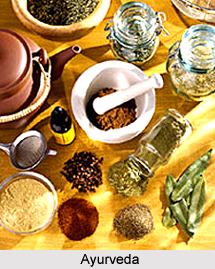 Ayurveda, the oldest form of healthcare is cultured and practised even today. An intricate medical system, known as the science of life, comprises of series of prescriptions that facilitate to overcome several human ailments. These prescriptions had been the brainchild of many eminent medical personalities who emerged during Medieval India. Some of the noteworthy physicians have been named below:
Ayurveda, the oldest form of healthcare is cultured and practised even today. An intricate medical system, known as the science of life, comprises of series of prescriptions that facilitate to overcome several human ailments. These prescriptions had been the brainchild of many eminent medical personalities who emerged during Medieval India. Some of the noteworthy physicians have been named below:
Acharya Drdhabala
Acharya Drdhabala is known to be the best redactor of Charaka Samhita. The value of Charaka Samhita deteriorated to a great extent in the hands of various unknown redactors. The one that was translated as `Charak` into Arabic during reign of Khalifa Harun-al-Rashid was the Drdhabala`s edition.
Acharya Bhagabhata
Acharya Bhagabhata is known for re-editing Drdhabala`s edition of Charaka Samhita. He named it as the Astanga Ayurveda Samgraha. The book revels that he was born in Sind. The Astanga Ayurveda Samgraha consists of six chapters, like, Sutrasthdna (definition), Sdrirasthdna (anatomy), Niddnasthdna (pathology), Chikitsdsthdna (therapeutics), Kalpasthdna (methodology) and Uttarasthdna (concluding chapters). These provide a vivid description of various surgical techniques. He is said to be one of the teachers at Nalanda University. Acharya Bhagabhata has also composed a book named Astanga Hrdaya. The composition has been named as Rasaratna Samucchya and is regarded as an important book of Ayurveda.
Madhava Kar
Madhava Kar, a renowned physician was born in Bengal in the 7th century A.D. He has pen down the famous book, `Ayurveda Sastra Rogabinischaya.` It is also known as `Madhava Nidana.` His book was translated into Persian by Haroon-al-Rashid and was named as `Nidan.`
Chakrapani Dutta
Chakrapani Dutta, a notable ayurvedic physician, was born in Bengal. Chikitsa Samgraha is his most celebrated composition. According to Sivadas Sen, he was a contemporary of Nayapal Deva of Gouda. Chakrapani Dutta was born in Mayureswar village in the family of Lodrhabali in the Barendrabhumi of North Bengal. His younger brother, Bhanu Dutta also practised Ayurveda.
Chakrapani is credited with composing two other books, Drabyaguna and Sarbasar Samgraha. He is also known to have written some explanatory notes on Charaka Samhita and Sushruta Samhita which are known as Charakatatta Pradipika and Bhanumati. He was conferred upon the honorary titles of Charaka Chaturanama and Susruta Sahasranama for his vast knowledge and expertise. It is said that he died in the 11th century.
Bhaba Mishra
Bhava Mishra, a native of Kannauj, was a contemporary of Emperor Akbar. He was an orthodox Brahmin who worked efficiently for the growth and development of medicine.
Repeated foreign invasions during the 12th century A.D. caused much disturbance in the growth and development of medicines and in its research process. The study and practise of other Indian sciences almost came to a standstill but the age old practise of ayurveda kept flourishing with the commendable contribution of the competent physicians.




















